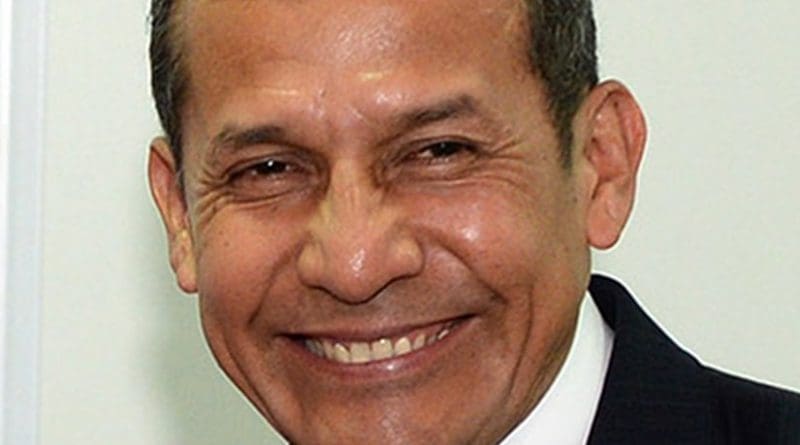Peru: Trans-Pacific Agreement Could Impact Price Of Medicines
Health unions in Peru warn that the Trans-Pacific Partnership (TPP) agreement could generate a trade monopoly that would eventually lead to an increase in the cost of medicines.
Non-governmental health organizations and Peruvian doctors unions have made no secret of their concerns following the announcement made by President Ollanta Humala on Oct. 5, when he informed the country about how successfully the TPP negotiations had ended. For these institutions, the signing of the trade agreement would cause the price of medicines in Peru to increase considerably.
The TPP, which brings together 40 percent of the world economy, is the most ambitious economic treaty in the world. There are 12 countries that comprise it: besides Peru are Australia, Brunei, Canada, Chile, Malaysia, Mexico, New Zealand, Singapore, Vietnam, the United States and Japan, the latter two being the main protagonists. This multilateral agreement encompasses 23 areas, among which is the chapter on Intellectual Property Rights, which is the most sensitive point for Peru at the moment.
The great fear of the health unions lies in the possibility that the patent protection period, which in Peru is considered to be 20 years, is extended, thereby creating a state monopoly in favor of some pharmaceutical industries. But it was the Minister of Foreign Trade and Tourism herself, Magali Silva, who went to the media and dismissed the rumors.
“The TPP is not going to change the patent system; that is to say, patents in Peru will continue to be protected for 20 years. I deny that we have given in on that system. It is not true as well that the test data are added to the protection period of the patent,” Silva said, who also reiterated that medicine prices will not be altered.
Confusion continues
However, one of the agencies that have been in more disagreement with the TPP is Health Action International Latin America and the Caribbean (HAILAC). Javier Llamoza, HAILAC’s project manager, does not believe when Humala says that the trade agreement will bring great benefits to the health sector. On the contrary, the expert believes that the signing of the agreement is detrimental to Peru, given the risk that large pharmaceutical companies could gain more monopoly power to the point that they can dictate prices of medicines on the market.
To Llamoza, it would be very serious for Peru that pharmaceutical industries be part of big monopolies; this would force consumers to buy a product only from a particular laboratory and at the price it determines. And those hardest hit, says Llamoza, are those patients who need access to expensive medicines, such as the medicines required by people with cancer, leukemia or other rare diseases.
“For example, the manufacturing of an ampoule of Trastuzumab, used for breast cancer treatment, costs about 97 soles [an equivalent to US $30], but in the market this ampoule is sold for more than 5,500 soles, and the average doses needed in a complete treatment is 30, so its cost per patient exceeds 150,000 soles,” explains Llamoza to Latinamerica Press.
However, different is the position of Carlos Fernández Dávila, legal adviser to the National Association of Pharmaceutical Laboratories (ALAFARPE), which groups foreign pharmaceutical companies, who says that the cost of medicines in Peru does not have to climb. On the contrary, he considers that the costs should fall because the treaty is going to allow the entry of new drugs into the market.
“It is not quite true that the cost of medicines will increase. The market dynamics are not dictated in Peru, but in the international market. This is why it is not responsible from some sectors to make cataclysmic predictions, made prematurely and without any scientific basis,” said Fernández Dávila to Latinamerica Press.
Secrecy
For Fernández Dávila, the discussion about a possible increase in medicine costs in Peru is nothing but an intuitive issue, and called it even “primitive”, considering that there are other key problems to tackle. He considers that the government should concentrate its efforts in facilitating access to medicines in some remote sectors of the country.
“The first thing Peru should do is tackle the real problem of health coverage,” he said. “We are a country in medium development, that in relative terms should have universal access to health care, and we do not. Quite the contrary. We are the next-to-last country [in Latin America] in health investment. The efforts in this regard are simply very poor.”
Another issue questioned within the TPP is the atmosphere of secrecy in which the negotiations have been conducted. To Llamoza, the government has not made the necessary efforts to adequately inform the public. The televised message to the nation from President Humala in early October has not been enough to dispel doubts about the implications of the agreement.
The signing of the final TPP document is scheduled for Feb. 4, 2016, when the 12 member states meet in New Zealand. From this date on, each nation will have a maximum of two years for its parliament to ratify the terms of the trade agreement before it enters into force.

